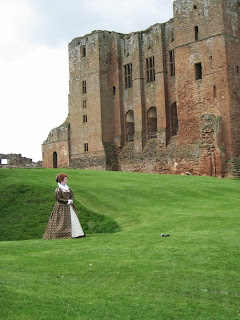I know what you're thinking. You're wondering, "what can I watch and listen to to better imitate Lila in thought, action, and deed?" This blog is for you, oh my sycophants, and of course also for my parents, who are approximately 2/3 of my readership. (That's a lower bound.)
Since reading a heap of
Hugo 2017 nominees, I've swung far to the other side (while still voraciously reading) and watched... some... movies. (Gasp!) Don't worry, I retain my innate personhood, and independently-verified snarkiness readings have been
off the charts this summer, so I'm not losing my precious "edge."
In this blog post:
- Wonderwoman
- Star Trek: III (*reboot timeline)
- Pitch Perfect
- Vikings
- The Rise of Catherine the Great
Wonderwoman was reportedly a male-gaze-free movie (see
this and
this), but it seemed plenty gaze-y to me, with
lots and lots of glamour shots, power posing, and wind-blowing-directly-through-hair. Her appearance was its own subplot! Also, years of weightlifting have left me perpetually dissatisfied with the insufficiently-muscled arms of women playing physically strong characters. If she is
actually going to overhead press an entire tank, then could she please have visibly-defined triceps? I suspect that even by examining her physical appearance this closely, I am somehow contributing to a cultural problem.
The coolest part of the movie was that, during a climactic fight, an explosion temporarily deafened Wonderwoman
and the audience. This meant that even the dramatic music cut out, which was a fantastic way to show that the fight was still tense, visceral, and compelling, even without the swelling music and loud explosions. Without even being able to tell what characters were shouting at each other! Unfortunately, the movie retconned this cool moment several minutes later by having a flashback in which all audio was restored. Boo.
As for plot: no comment from me; I don't understand how the marketing-fandom-executive trifecta synergy works; superhero movies make no sense. I once saw a kabuki play in Japanese in Tokyo, and I got a last-minute ticket for the second act only. There were no surtitles, so I had no idea what the plot was, I could not understand the speaking, and every single gesture and facet of the performance and set seemed imbued with a mystical relevance that I could only hypothesize. This was basically the same, except much less interesting.
I tried watching
Star Trek: a third thing, as endless scifi sequels are probably easier to comprehend, but I found it was replete with the same sort of overhashed writing. As if the script was an amalgam of several scripts,
and even that script was lost about halfway through shooting. I think there were several plot points that could have been solved by characters just talking with each other, or occasionally sending a text message. This is in keeping with (apparent) modern movie-writing style. Honestly I tried to forget this as soon as it ended, because it didn't include any cool effects and there was no unreliable narrator. Why bother?
Pitch Perfect was a much better palate-cleanser, for being fairly bland with little bits of cute music and several lines that seemed both realistic and funny. It left unexplained how a singing group that spends most of its time practicing a dance routine can manage to perform musically-complex arrangements flawlessly, but ... it also didn't explain how so many 25-30 year-olds were in college.
Vikings is basically Toxic Masculinity: The Historical Drama. I watched it because I am waiting for the next season of
Versailles to be released, and I wanted to see more
George Blagden performances. It's weird to see Louis XIV dressed up as a grime-covered heathen. I couldn't stomach very much of this show, as it relied too much on close-up shots of men brooding over their own hurt egos and deciding to murder each other (and ancillary women and children). That's not plot development, IMHO.
The Rise of Catherine the Great was terrific!
... which, I mean,
of course I liked this. It was a dramatized history, with very slow plot progress, in German and Russian (and some French), with subtitles. All "place settings" were untranslated onscreen, and also untranslated were the numerous times that the camera looked over someone's shoulder as they wrote a politically-significant letter
in Russian. I suppose it might be intellectual snobbery, but I actually enjoyed it a lot more because of the linguistic authenticity, even though that made it less directly accessible to me. Aside from the language, the slow plot, the lovely costumes, ... how to explain my delight? Oh, that's right: a historical digression.
Once, when I had roommates with Netflix, my influence on the group Netflix profile became clear when the mysterious, opaque genre-generating algorithm suggested an
entire collection of videos under the heading
"British Period Pieces Featuring a Strong Female Lead". This series -- though not British -- fits squarely into that concept-space. I found it by only lightly-algorithmically-influenced browsing, but I'm confident that I would have found it faster Netflixily.
I recommend it.
I also recommend, you know, reading books. Lots of them (I've now added several histories of Russia to my queue). If that's not your style, then the other summer 2017 Lila fashion is singing to yourself in the car: try it today!
This post's theme word is quiff (n), "a tuft of hair brushed up above the forehead," or "a woman considered as promiscuous."
The production featured several historically-accurate quiffs!































